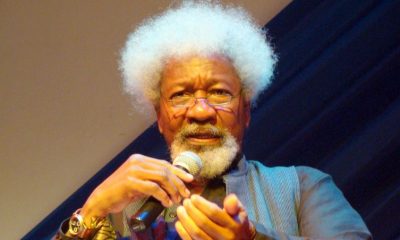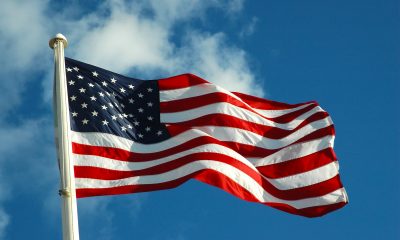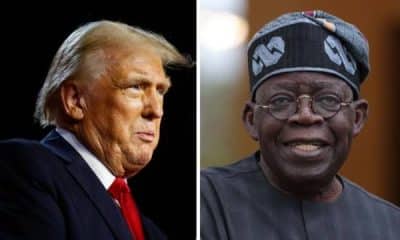Nigeria News
Ten Things To Know About Donald Trump’s Vice, JD Vance

James David Vance, widely known as JD Vance, has made headlines for his remarkable journey from the heartland of rural Ohio to the highest political office, securing a presidential election victory alongside Donald Trump.
Vance’s rise to prominence as a U.S. Senator, author, and venture capitalist embodies a story of resilience, underscored by his focus on tackling the challenges of America’s working-class communities.
A best-selling author and advocate for policy reform, Vance has shared personal insights into America’s opioid crisis, the economic struggles of rural areas, and the need for industry revitalization.
Here’s a closer look at some significant aspects of JD Vance’s journey:
1. Early Life and Background: Born in Middletown, Ohio, J.D. Vance grew up in an area characterized by social difficulties and economic downturn. Being up in a working-class household, Vance was able to observe firsthand the hardships faced by Rust Belt regions. His later work, which focuses on supporting these communities and tackling problems like poverty, addiction, and economic revitalization, was influenced by his early years
2. Military Service: Prior to going to college, Vance was deployed to Iraq while serving in the U.S. Marine Corps. He frequently talks about how his military service shaped his discipline and vision, which are important aspects of his work.
3. Academic Path: After attending Ohio State University, Vance went on to Yale Law School, where Professor Amy Chua served as his mentor. His perseverance and dedication are evident in his journey from a challenging upbringing to one of the most prominent law schools in the United States.
4. Author of Hillbilly Elegy: J.D. Vance is well-known for telling the story of his upbringing in a working-class family in rural Ohio in his 2016 memoir, Hillbilly Elegy. The book highlights themes like poverty, addiction, and the demise of American industry while providing a firsthand glimpse at the difficulties that many people in Appalachia experience. It also brings the struggles of white working-class communities to the attention of the country.
5. Hillbilly Elegy’s Cultural Impact: Ron Howard’s 2020 film adaptation of Hillbilly Elegy was a tremendous hit. By highlighting the difficulties faced by Appalachian communities, the book and movie brought poverty, addiction, and the loss of American manufacturing jobs to the attention of the country.
6. Background in Venture Capital: Vance was a venture capitalist in Silicon Valley following his graduation from law school. Later, in order to spur innovation and job development in the Midwest and draw in investments that support his pro-growth philosophy, he co-founded Narya Capital, a venture capital firm with headquarters in Cincinnati.
7. Political Career: Vance successfully ran as a Republican in 2022 and was elected to represent Ohio in the U.S. Senate. Since then, he has positioned himself as a voice for working-class Ohioans by concentrating on topics that are significant to his base, including drug addiction, economic regeneration, and promoting conservative principles.
8. Position on the Opioid Epidemic: Vance has been an outspoken supporter of tackling the opioid crisis, which has affected Ohio. He has discussed the necessity for more robust responses to addiction, such as improved treatment programs and more stringent regulations on opioids.
9. Family Life: Vance is married to Usha Vance, a fellow Yale Law graduate who works as a lawyer. The couple has three children. His family life and background have strongly influenced his policy stances, particularly his focus on family stability, education, and economic opportunity.
10. Opinions on Economic Policy: Vance is in favor of economic measures that aim to revive American manufacturing and industry, particularly in the Midwest. With the goal of reviving Rust Belt communities, he supports policies that safeguard American jobs, promote homegrown manufacturing, and reduce dependency on foreign supply networks.












